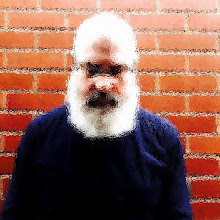Countee Cullen
 Countee Cullen born 30 May 1903 (d. 1946)
Countee Cullen born 30 May 1903 (d. 1946)Countee Cullen was an American Romantic poet. Cullen was one of the leading African American poets of his time, associated with the generation of black poets of the Harlem Renaissance.
Cullen was born with the name Countee LeRoy Porter and was abandoned by his parents at birth. He was raised by his grandmother, Mrs Porter, but because he was very secretive about his life, it is unclear where he was actually born. Scholars state he was either born in Louisville, Kentucky, or Baltimore. Later in his life, Cullen said he was born in New York City. It is known that he attended Townsend Harris High School for one year and then transferred to DeWitt Clinton High School in New York and received special honours in Latin studies in 1922.
In 1918 his grandmother died. Cullen was subsequently adopted by Reverend Frederick Ashbury Cullen, minister at Salem Methodist Episcopal Church in Harlem, and thus Cullen was raised a Methodist. Throughout his unstable childhood his birth mother never attempted to contact Cullen, and would not attempt to do so until sometime in the 1920s, after he'd become famous.
Cullen won many poetry contests from a very young age and often had his winning work reprinted. He attended DeWitt Clinton High School, mainly consisting of all white, male students. He became Vice President of his class during his senior year, was also involved in the school magazine as an editor, and was affiliated with the Arista Honor Society.
 After completing his secondary education, Cullen attended New York University. While an undergraduate, he published works in various literary magazines, including Harper's, Century Magazine, and Poetry. Also, his writing exceptional faculties were acknowledged with prizes from The Crisis, edited by W. E. B. Du Bois, and Opportunity of the National Urban League. He graduated in 1925. Soon afterwards, he produced his first volume entitled Color and pursued graduate studies at Harvard University.
After completing his secondary education, Cullen attended New York University. While an undergraduate, he published works in various literary magazines, including Harper's, Century Magazine, and Poetry. Also, his writing exceptional faculties were acknowledged with prizes from The Crisis, edited by W. E. B. Du Bois, and Opportunity of the National Urban League. He graduated in 1925. Soon afterwards, he produced his first volume entitled Color and pursued graduate studies at Harvard University.In April 1928, Cullen married Nina Yolande Du Bois, daughter of the famous W. E. B. Du Bois. Two months after the wedding, Cullen left for Europe with his father and Harold Jackman; his wife followed after a month. He was awarded a Guggenheim Fellowship in 1928.
Nina Yolande Du Bois divorced Cullen two years later, saying that he told her that he was sexually attracted to men.
In 1940, he married Ida Mae Roberson and they enjoyed a seemingly happy marriage.
On January 9, 1946, Cullen unexpectedly died of uremic poisoning and complications from high blood pressure. After his death, for a few years, Cullen was honoured as the most celebrated African American writer. A collection of some of his best work was also arranged in On These I Stand.
The West 136th Street branch of the New York Public Library in Harlem is named after Countee Cullen
Labels: African Americans, Harlem Renaissance, Photographers, Poets
















